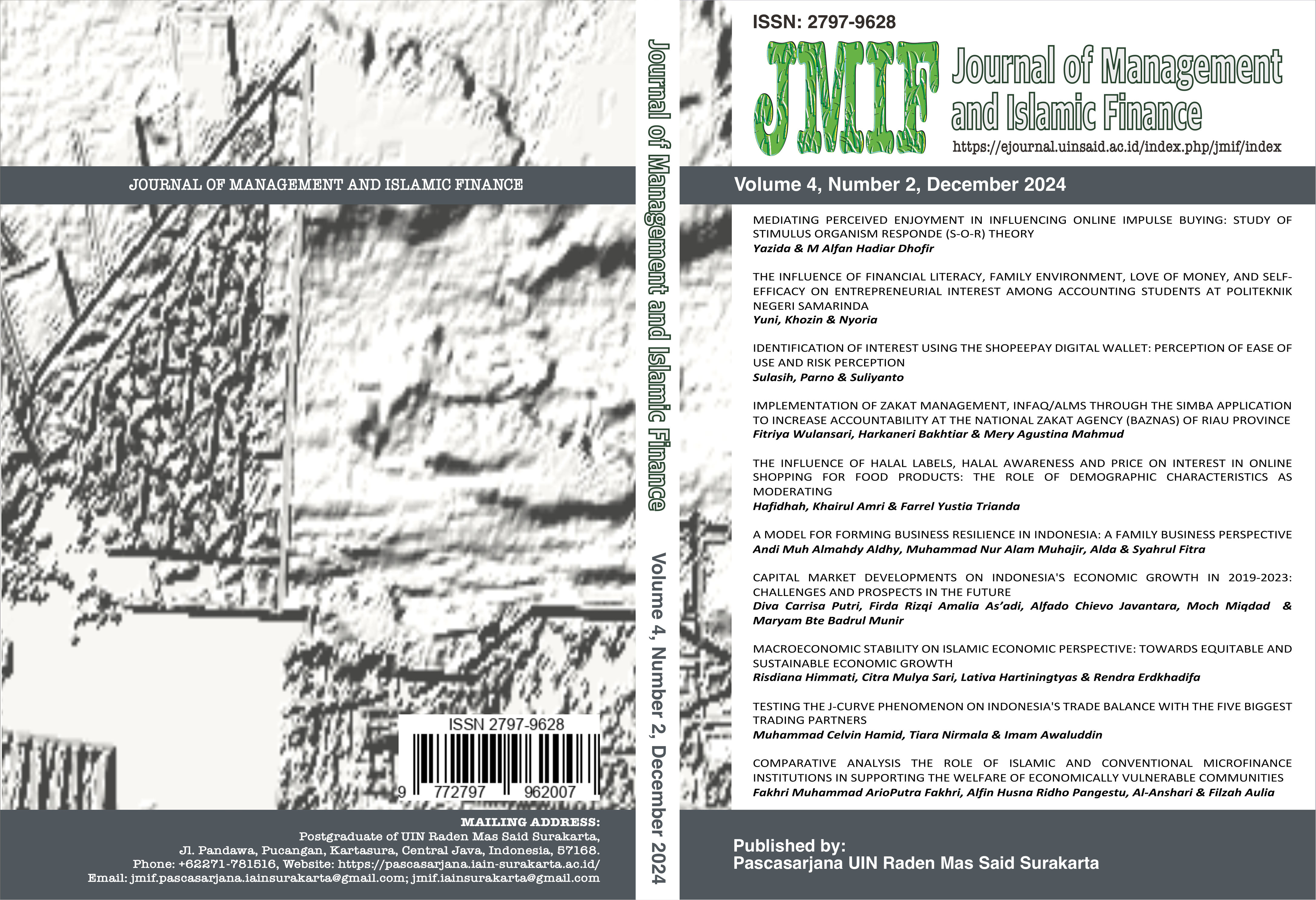MACROECONOMIC STABILITY ON ISLAMIC ECONOMIC PERSPECTIVE: TOWARDS EQUITABLE AND SUSTAINABLE ECONOMIC GROWTH
DOI:
https://doi.org/10.22515/jmif.v4i2.10003Keywords:
Economic Growth, Macroeconomic Stability, Islamic Economic Perspective, SustainableAbstract
This study aims to determine macroeconomic stability in the perspective of Islamic economics towards equitable and sustainable economic growth. In this context, Islamic economics emphasizes justice, equal distribution of income, and prevention of practice usury. Policy government such using of zakat and policy in appropriate monetary with Islamic principles can help reach stability of economics. The method in this study uses literature study approach. The main purpose to reach in this study is significantly important for evaluating economics policy related to growth fair economy. The analysis shows that from perspective Islamic economics, stability macroeconomics will be evaluated and improved by policy supporting economics investment, equal distribution of income, and growth of sustainable economy.
Downloads
Download data is not yet available.
Downloads
Published
2024-12-30
Issue
Section
Articles
Citation Check
License
Copyright (c) 2025 Risdiana Himmati, Citra Mulya Sari, Lativa Hartiningtyas, Rendra Erdkhadifa

This work is licensed under a Creative Commons Attribution-ShareAlike 4.0 International License.
Authors who publish with this journal agree to the following terms:
- Authors retain copyright and grant the journal right of first publication with the work simultaneously licensed under a Creative Commons Attribution License that allows others to share the work with an acknowledgement of the work's authorship and initial publication in this journal.
- Authors are able to enter into separate, additional contractual arrangements for the non-exclusive distribution of the journal's published version of the work (e.g., post it to an institutional repository or publish it in a book), with an acknowledgement of its initial publication in this journal.
- Authors are permitted and encouraged to post their work online (e.g., in institutional repositories or on their website) prior to and during the submission process, as it can lead to productive exchanges, as well as earlier and greater citation of published work.






